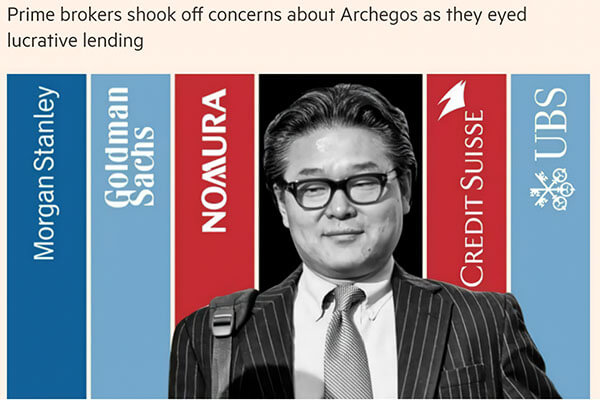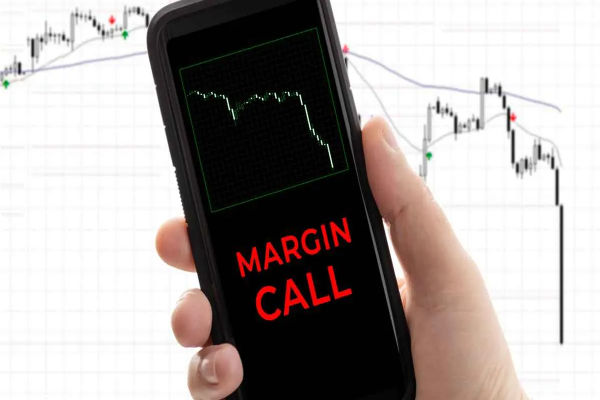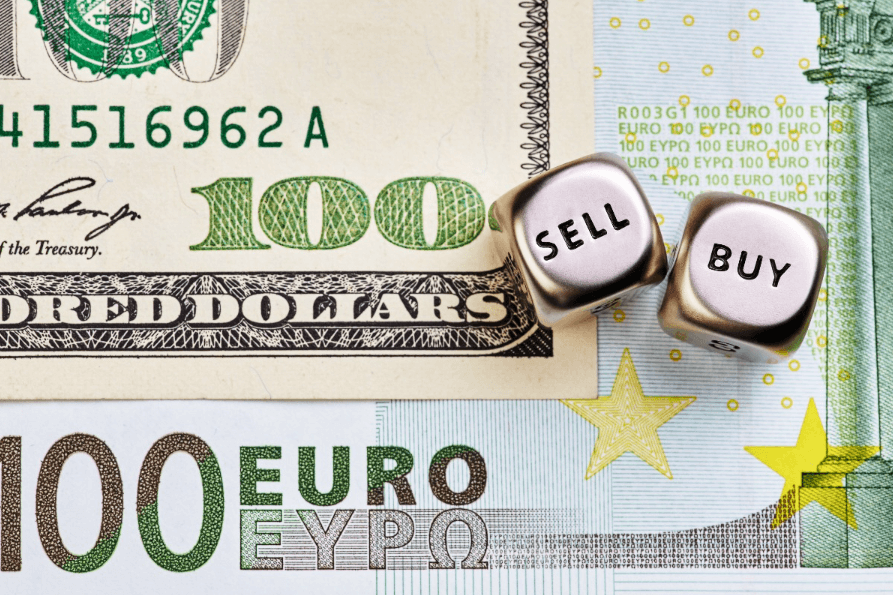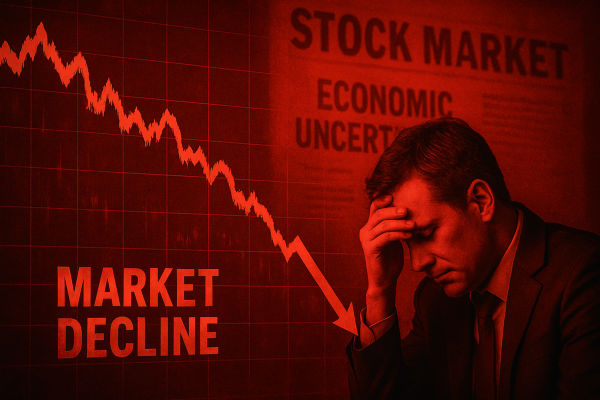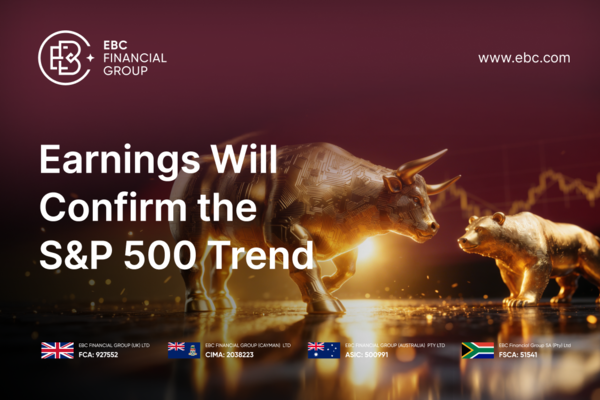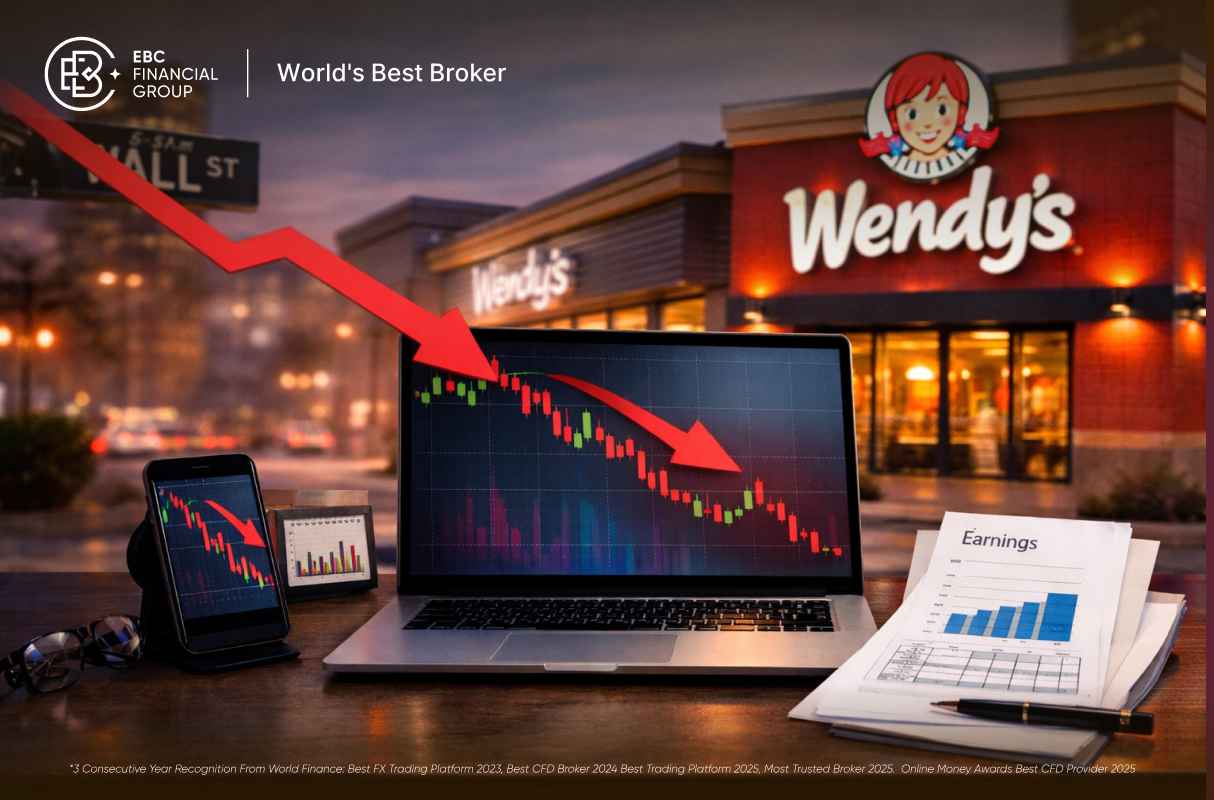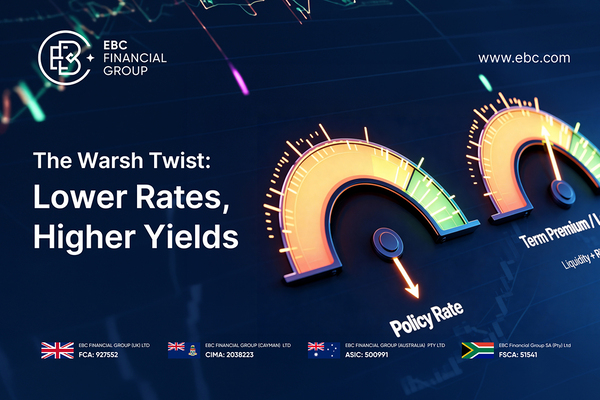In the investment world, there was once a man who caused a sensation in the
U.S. stock market with his amazing personal abilities. In just two days, this
person successfully caused the crazy plunge of more than ten Chinese concept
stocks, pushing six major Wall Street investment banks to a huge loss of tens of
billions of dollars, and he also lost 20 billion U.S. dollars as a result. This
man is very remarkable. He is known as the man who lost money the fastest in
modern history, which is an epic level. The protagonist of this legendary story
is the person we are going to discuss today—Bill Hwang, the Korean founder of
the American hedge fund Archegoss.
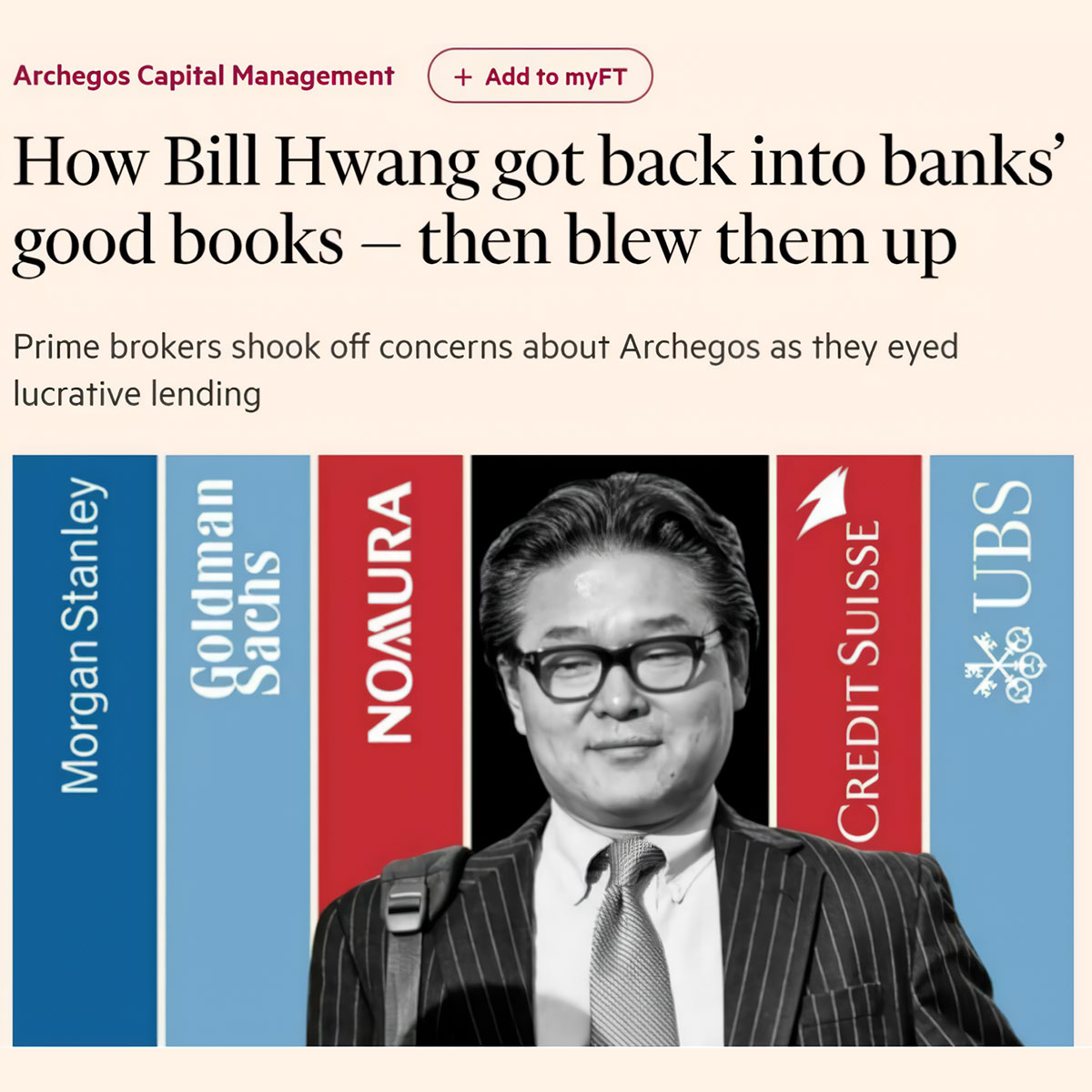
Bill Hwang was born in South Korea and immigrated to the United States in
1982. He obtained an undergraduate degree from UCLA and an MBA from Carnegie
Mellon University. After working for a Securities company for several years, he
showed his unique investment talent, attracted the attention of legendary hedge
fund tycoon Julian Robertson, and became a member of Robertson's Tiger Fund.
At Tiger Management, Bill Huang's performance was so outstanding that he won
Robertson's trust and was encouraged to set up his own fund, the Tiger Asia
Investment Fund. He successfully raised the management scale of this Asian Tiger
Fund to US$5 billion, but due to frequent underground operations, it was
discovered by the US Securities and Exchange Commission (SEC) in 2012 for
Insider Trading, fined US$44 million, and disbanded. Tiger Asia Fund. Before
2020, because he was not allowed to manage external funds, Bill Huang used
US$200 million to establish Archegos Capital Management.
Over the next eight years, Bill Huang relied on aggressive investment
strategies to rapidly grow his US$200 million to US$20 billion. His method of
operation is basically to select stocks through fundamental analysis, paying
attention to the company's performance, financial reports, and operations. He is
good at investing in and holding companies that are optimistic about their
potential, while adopting a short-selling strategy for companies that he is not
optimistic about. In the beginning, due to the previous SEC fines and the small
size of the funds, Wall Street's major investment banks kept away from him and
were not very willing to provide trading leverage. Bill Huang can only use his
own funds to trade, and the leverage cannot be too large. Whether it is profit
or loss, the impact on the market is relatively small.
With the support of investment banks, Bill Huang was able to use financial
derivatives to maximize investment leverage, successfully enter the
billion-dollar club, and become a major market maker. The financial derivatives
he used were called total return swaps (TRS). Through this instrument, he could
achieve higher leverage, but it also came with huge risks.
The principle of TRS is simple: to obtain higher leverage through collateral. Take Apple, for example. An average investor can only buy shares if he thinks
Apple's stock will rise. But Bill Huang was not satisfied with what ordinary
investors did. He wanted greater leverage. So, he thought of using TRS, a
financial derivative, which is essentially a leverage tool. Through collateral,
he can obtain a higher leverage ratio.
For example, Bill Huang approached Goldman Sachs and proposed a contract to
gamble on the rise and fall of Apple stock. If the stock goes up, Goldman Sachs
pays Bill Hwang, and if the stock goes down, Bill Hwang pays Goldman Sachs. In
this way, Bill Huang achieved leverage of up to five times, resulting in huge
potential gains but also high risks.
Of course, this operation is not without risks. As an investment bank,
Goldman Sachs required Bill Huang to provide collateral to hedge risks when
faced with credit risks and market risks. Bill Huang achieved higher leverage
through collateral but also increased his own risk.
Bill Huang chose to use TRS for investments. He was not satisfied with
cooperation with one investment bank. He conducted multiple TRS operations with
six Wall Street investment banks and invested heavily in a number of American
streaming media companies and Chinese concept stocks, mainly in China. Concept
stocks and American streaming media companies, such as Amazon, Facebook, Baidu,
Vipshop, etc. Although the specific operations are unknown, starting in the
second quarter of 2020, these investment banks have increased their positions in
stocks that Bill Huang is optimistic about and have cooperated with Bill Huang
to obtain service fees through TRS transactions.
In one year of cooperation, these investment banks earned hundreds of
millions of dollars in service fees from Bill Huang. However, the story was not
perfect. They did not know that Bill Huang had signed contracts with other
investment banks and conducted TRS transactions among different investment
banks. This led to a huge risk that in March 2021, Bill Huang's entire portfolio
would have major problems due to the news of a refinancing of one stock.
Investment banks are in a dilemma, as each faces a dilemma: hold on and sell
slowly, or sell like crazy to get out of the market quickly. Investment banks
have chosen to clear their positions and stop losses, accelerating the sale of
stocks and causing Chinese concept stocks to plummet. In the midst of this
chaos, Huang had to cut off his collateral to try to maintain his position. Due
to the collective liquidation of investment banks, the stock price fell sharply,
and Bill Huang ultimately suffered huge losses, losing 20 billion US dollars. At
the same time, investment banks also suffered huge losses, and Wall Street was
shaken.
Although for the six investment banks, the collective optimal strategy is to
maintain their positions and gradually reduce their positions, for each
individual investment bank, regardless of how others operate, the wisest choice
at this time is to sell quickly and withdraw quickly. This is like being trapped
in a prisoner's dilemma, where every investment bank is making crazy selling
decisions for its own benefit.
In this case, it is difficult to reach an agreement between investment banks.
The results are self-evident. The six investment banks unanimously chose the
worst collective outcome, that is, they adopted a crazy selling strategy. On the
afternoon of Thursday, March 25, Morgan Stanley began selling $5 billion worth
of stocks at a discount to some hedge fund clients. Immediately afterwards,
before the market opened the next day, Goldman Sachs also sold $6.6 billion
worth of Baidu, Tencent Music, Vipshop, and other stocks. After the market
opened, another US$3.9 billion worth of iQiyi, GSX, and other stocks were
sold.
Investment banks began calling one after another to find suitors, competing
to see who could sell the property faster. As a result, Chinese streaming media
stocks inexplicably plummeted within a week. YC fell 53.4%, Discovery fell
46.3%, Baidu fell 20.8%, Vipshop fell 38.7%, and Tencent Music fell 32.7%.
Naturally, Bill Huang also suffered huge losses and went bankrupt, with losses
as high as 20 billion U.S. dollars.
As for investment banks, it is estimated that Nomura Securities lost a full
US$2 billion, and Credit Suisse became the largest loser, with a loss of up to
US$4.7 billion. Goldman Sachs and Morgan Stanley, which were the first to
escape, suffered relatively small losses and successfully escaped. And
retreat.
There is more to this story than it seems. This is not just a story about
rich people spending money and liquidating their positions. Behind it is the
problem of inadequate supervision and the fact that major Wall Street investment
banks are involved in fierce overt and covert fights because of the prisoner's
dilemma. In the stock market, it seems that there is only buying and selling,
and Stock Prices only rise and fall. However, behind these seemingly random
price fluctuations, there are actually hidden struggles between thousands of
parties. This may be the truth behind the unpredictable nature of the stock
market.
Disclaimer: This material is for general information purposes only and is not intended as (and should not be considered to be) financial, investment or other advice on which reliance should be placed. No opinion given in the material constitutes a recommendation by EBC or the author that any particular investment, security, transaction or investment strategy is suitable for any specific person.
